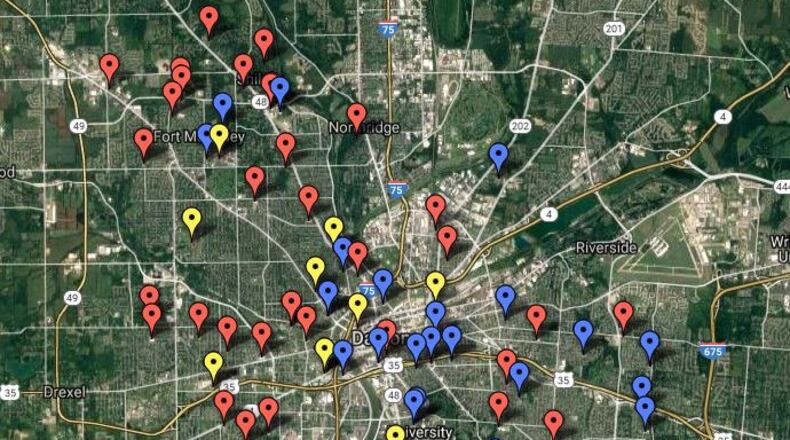Here is a breakdown of the enrollment numbers:
- Total number of children in the Dayton school district: 22,576
- Number attending DPS: 12,394
- Number attending charter schools: 6,535
- Number using vouchers at a private school: 2,653
- Number attending other public districts through school choice: 921
Parents want the best for their children, and Dayton Public Schools has earned a reputation as a failing district; its students have ranked for years at or near the bottom of the state in standardized test scores.
THE PATH FORWARD: DAYTON SCHOOLS
But if you look a little deeper, the story is more nuanced. Within Dayton Public Schools, some school buildings perform much better than the district-wide average in the state “performance index” derived from standardized state tests.
Furthermore, exactly half of the 18 charter schools that report test scores have a lower performance index than the DPS average. The parents of more than 2,100 kids took their children out of DPS and put them in charter schools that have lower test scores than Dayton Public Schools.
Another two charter schools had so few students they didn’t have to report test scores, and seven are “dropout recovery” schools, so they aren’t held to the same standards.
FACEBOOK GROUP: Join the discussion on The Path Forward: Dayton Schools
Private schools don’t have to give students standardized tests and don’t get state report cards. But students who use state money to help pay for tuition at a private school with a voucher do have to report their proficiency in English and math.
The overall proficiency rate for Dayton Public Schools is 42.3 percent. Eight private schools have lower proficiency scores than DPS, and six have better scores. State enrollment numbers for private schools are incomplete, but the schools with lower proficiency scores than DPS have at least 1,783 students.
So, putting that all together, here’s a map of Dayton’s educational landscape including DPS buildings, charter schools and private schools. Schools that perform better than the DPS average are colored blue, those that perform worse are colored red and those that don’t have enough data to compare are colored yellow.
About the Author

